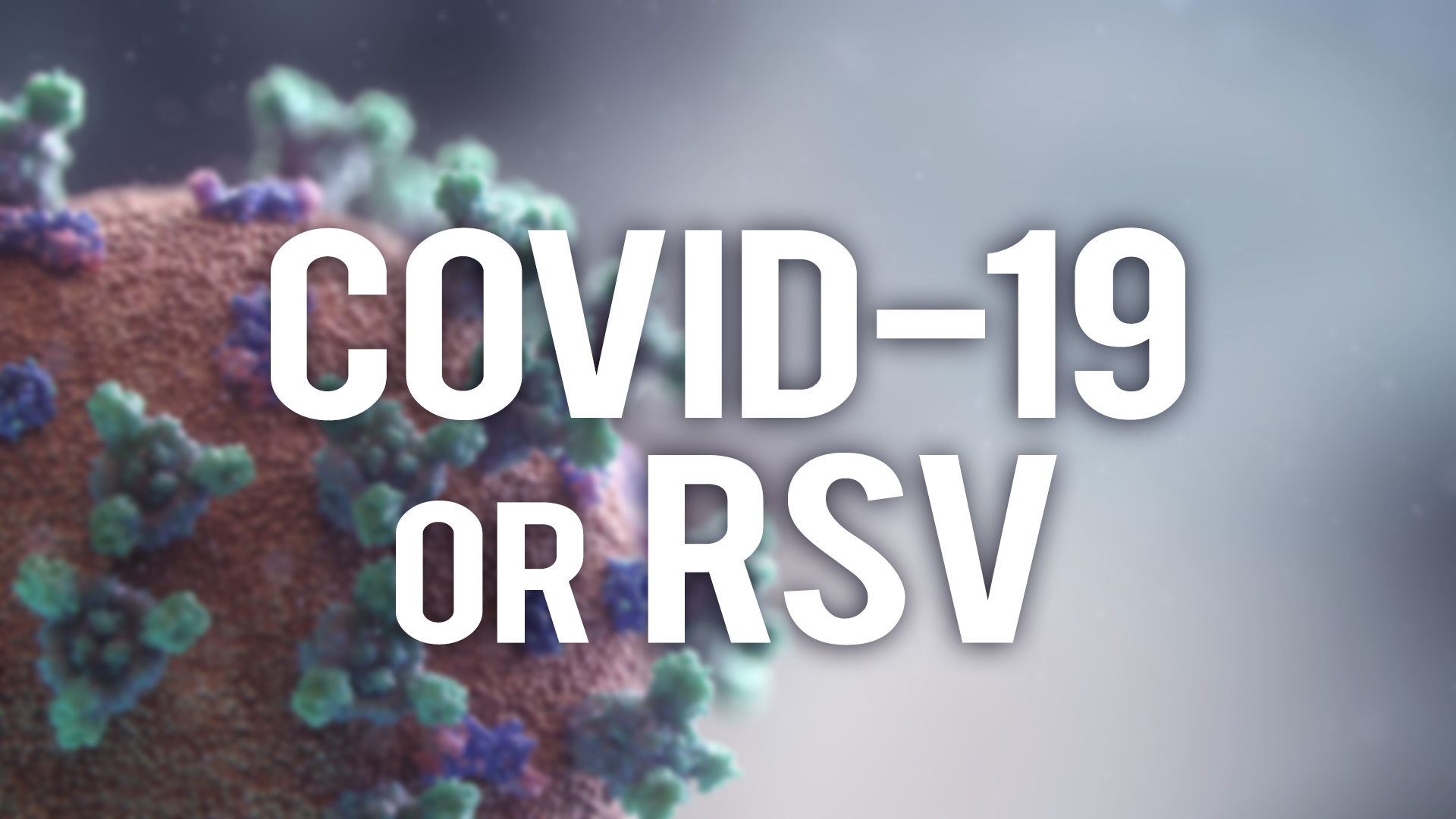COVID-19 or RSV?
Posted in Coronavirus (COVID-19), Health & Wellness on August 31, 2021

COVID-19 and RSV are complicated illnesses that share several symptoms, and with cases on the rise for both viruses, it may be hard to differentiate between the two.
What is RSV?
Respiratory Syncytial Virus (RSV) is a highly contagious lung disease. This virus typically stays in the body between 3-7 days presenting symptoms, such as:
- Fever
- Coughing
- Sneezing
- Runny Nose
- Breathing Difficulties
- Decreased Appetite
- Irritability (in infants)
When it comes to RSV, there isn’t much that can be done to stop the virus. Seeing a doctor is a necessary action to take to receive a proper treatment plan. If a case of RSV is severe, it has the potential to develop into pneumonia and bronchiolitis, which would require hospital care. With a pre-existing heart or lung disease, the virus can make the conditions worse.
Children under 6-months old and adults 65+ are the two age groups most impacted by RSV since they are at the most significant risk of being immunocompromised.
RSV Statistics
- Approximately 57,000 children under five are hospitalized each year
- 177,000 older adults are hospitalized
- Around 14,000 die each year from RSV
- Almost all children contract RSV by two years of age
What is COVID-19?
Coronavirus disease (COVID-19) is an infectious disease caused by a virus called SARS-CoV-2. Symptoms can range from mild to severe and can appear within 2 – 14 days after exposure. Symptoms may include:
- Fatigue
- Muscle or Body Aches
- Loss of Taste or Smell
- Sore Throat
- Nausea or Diarrhea
Severe symptoms may occur that would indicate immediate medical assistance is required:
- Pressure in chest
- Confusion
- Inability to remain awake
- Trouble Breathing
- Pale, gray, or blue skin, lips, or nail beds
Since March 2020, over 38 million people have tested positive for carrying the virus and as well as approximately 634,000 deaths have occurred. This number is continuing to rise as the variant continues to spread among communities.
While RSV and COVID-19 consistently spread among people, the responsible thing to do if you have any symptoms is to see a doctor. They will be able to run tests and issue the proper treatment plan. While no one is immune to either virus, there are ways to reduce the chance of contraction.
6 Tips to Reduce the Chances of Getting RSV or COVID-19
- Stay hydrated
- Wear a mask
- Avoid close contact with others
- Wash your hands
- Avoid anyone who is sick
- Get outside (being indoors weakens the immune system)
By remaining responsible for your health and others, the contraction of illnesses can be significantly reduced. Stay safe, Ohio!